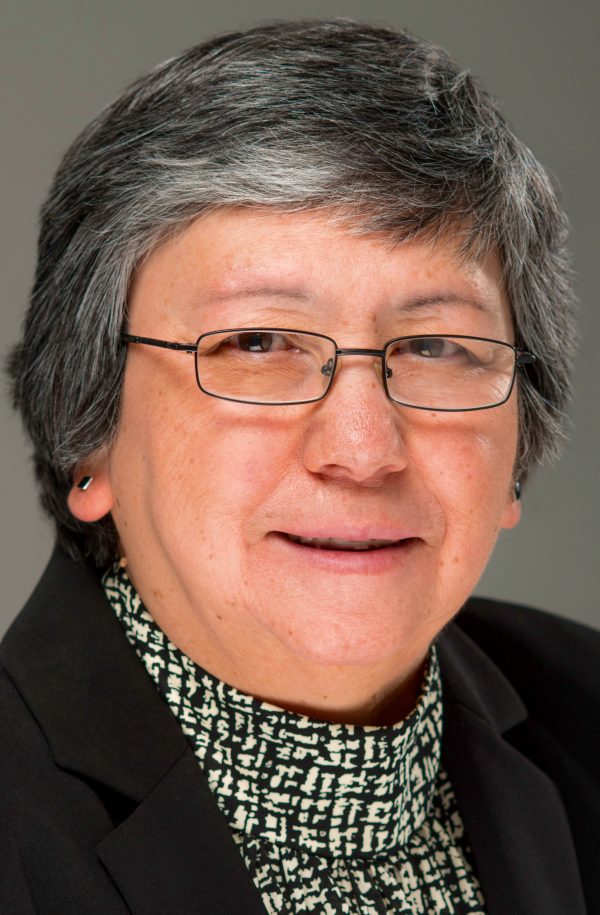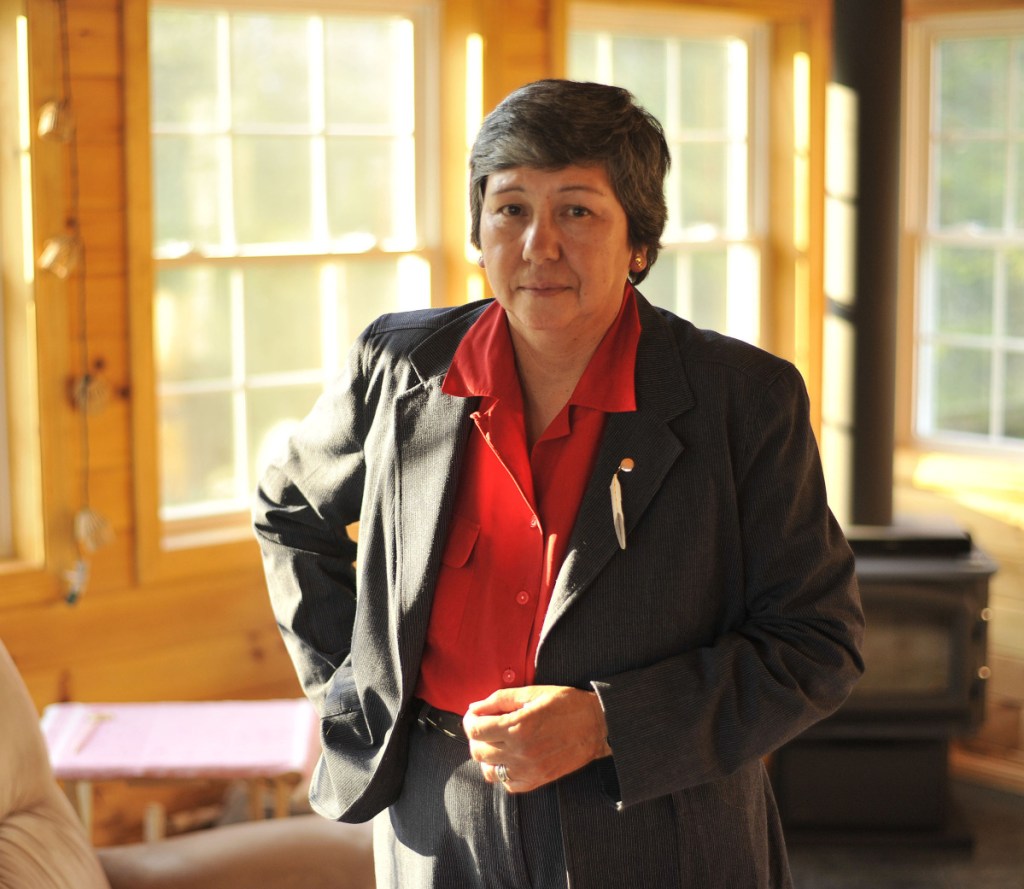AUGUSTA — Gov. Janet Mills has taken a step to improve the state’s long-strained relations with tribal governments by appointing a former Penobscot Nation police chief and legislative representative to serve as a senior adviser.
Donna Loring of Bradley will act as the liaison between Mills’ office and leaders of the four federally recognized tribes in Maine. Loring served 12 years as the Penobscot Nation’s representative to the Maine Legislature – including alongside Mills on a legislative committee – and is a former Penobscot police chief and a recent member of the tribal council.
In creating the position of senior adviser on tribal relations, Mills says she wants to send a message that “we’re listening” and that her administration is willing to work with tribes on “a new future shaped by mutual trust and respect.” Mills said would include important issues such as access to health care, economic development near tribal communities, expanding broadband internet, combating the opioid epidemic and addressing the higher rates of cancer, diabetes and other diseases among those living on reservations.
“That is something we need to address. But it’s not for me to tell the tribes what they need or what they want or what we should do.” Mills said in an interview. “It’s up to me to listen to them, Donna will be my eyes and ears, and a close adviser on all issues tribal.”
Loring does not expect tribal-state relations to be fixed overnight, but she views the proposed the liaison position as a potential pathway to better partnerships between the parties.
“The elephant in the room here is building a trust relationship and that is very difficult,” said Loring, who resigned her seat on the Penobscot Nation Tribal Council in order to take the senior adviser position with the Mills administration. “The tribal-state history has been one of mistrust ever since Maine became a state … but if we can establish that sort of working relationship and talk about issues rather than litigate them, I think that is going to change a lot as far as building relations.”
Loring’s appointment is the latest – and perhaps most concrete – sign that Mills wants to hit reset in her dealings with tribes following several tumultuous years when, as Maine’s attorney general, she occasionally clashed with them over sovereignty issues.
But relations between the four sovereign tribes in Maine – the Penobscot Nation, the Passamaquoddy Tribe, the Houlton Band of Maliseets and the Aroostook Band of Micmacs – and state government have been frayed for years.
Mills’ predecessor, Republican Gov. Paul LePage, issued an executive order during his first year in office directing state agencies to develop policies that recognized tribal sovereignty and to seek out input from tribes on important issues. State agencies also were supposed to designate tribal liaisons.
But LePage rescinded the executive order four years later, accusing the tribes of failing to respect the state’s interests. Tribal leaders, in turn, accused the state of failing to respect their governments’ sovereignty. The Penobscot Nation and Passamaquoddy Tribe formally withdrew their representatives to the Legislature a month after LePage rescinded the executive order.
Mills also clashed with tribes during her years as attorney general.
She defended the state against a Penobscot Nation lawsuit claiming tribal jurisdiction over the main stem of the Penobscot River, not just the lands and islands that are part of the reservation. As attorney general, Mills also challenged a U.S. Environmental Protection Agency order directing the state to adopt stricter water quality standards in waterways that tribal members rely on for sustenance fishing.
Loring acknowledged that the Penobscot River as “sacred” and a hot-button issue for her community. But she added: “There is a conversation to be had, and had we been talking before this (lawsuit) and not adversarily pitted against each other, I don’t think we would have been in court.”
Mills hopes that the Maine Indian Tribal-State Commission – a 13-member body created after the landmark 1980 “settlement agreement” between the tribes and the state – could become a forum for dispute-resolution to avoid future court battles. The commission has been largely inactive for several years because LePage reportedly did not fill vacancies among the six seats held by the state. Mills said she plans to fill the positions.
“They have complete autonomy when it comes to self-governance,” Mills said of tribal governments. “So we need to be partners rather than adversaries, and neighbors and friends rather than opponents.”
The governor also said there is always more that can be done to address the serious issues raised by the Maine-Wabanaki State Child Welfare Truth and Reconciliation Commission, which explored how Native children were treated and handled in the child welfare system.
Loring, 70, served as police chief for the Penobscot Nation from 1984 to 1990 and was the first female graduate of the Maine Criminal Justice Academy to serve as a police chief. In addition to serving on the Penobscot Tribal Council and in the Legislature, Loring is an Army veteran who served with the Women’s Army Corps near Saigon during the Vietnam War.
Kevin Miller can be contacted at 791-6312 or at:
Twitter: KevinMillerPPH
Copy the Story LinkSend questions/comments to the editors.





Success. Please wait for the page to reload. If the page does not reload within 5 seconds, please refresh the page.
Enter your email and password to access comments.
Hi, to comment on stories you must . This profile is in addition to your subscription and website login.
Already have a commenting profile? .
Invalid username/password.
Please check your email to confirm and complete your registration.
Only subscribers are eligible to post comments. Please subscribe or login first for digital access. Here’s why.
Use the form below to reset your password. When you've submitted your account email, we will send an email with a reset code.